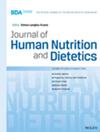Navigating Person-Centred Nutrition and Mealtime Care in Rehabilitation: A Conceptual Model
Abstract
Background
Person-centred care impacts individual and organisational outcomes in rehabilitation and nutrition services. However, there is little evidence regarding person-centred nutrition and mealtime care within rehabilitation settings. We aimed to develop a conceptual model to guide nutrition and mealtime care in rehabilitation, focusing on factors associated with person-centred care and interprofessional practice.
Methods
Employing an interpretivist research approach, we conducted 58 h of ethnographic field work, including observations and interviews with 165 patients, support persons, and staff across three rehabilitation units from September 2021 to April 2022. Data were analysed iteratively using reflexive thematic analysis, with key factors inductively and deductively identified and mapped onto the Nutrition Care Process to create the conceptual model. The model was then refined in collaboration with staff (n = 10) and consumers (previous patients and support persons; n = 7) in expert panel sessions.
Results
The Person-Centred Nutrition and Mealtime Care in Rehabilitation model conceptualises person-centred nutrition and mealtime care through the steps of Nutrition Assessment, Priorities, Intervention, and Monitoring and Evaluation. These steps highlight consumer, team, and organisational factors influencing person-centred nutrition and mealtime care. The representation and communication of these factors within the model were refined with staff and consumers.
Conclusions
This study presents an evidence-informed conceptual model to guide person-centred nutrition and mealtime care in rehabilitation. By sharing this conceptual model, we welcome its use and adaptation by dietetic staff/managers to support advancing person-centred nutrition services. This model is designed to support enhanced quality of rehabilitation and nutrition services in line with existing evidence.


 求助内容:
求助内容: 应助结果提醒方式:
应助结果提醒方式:


